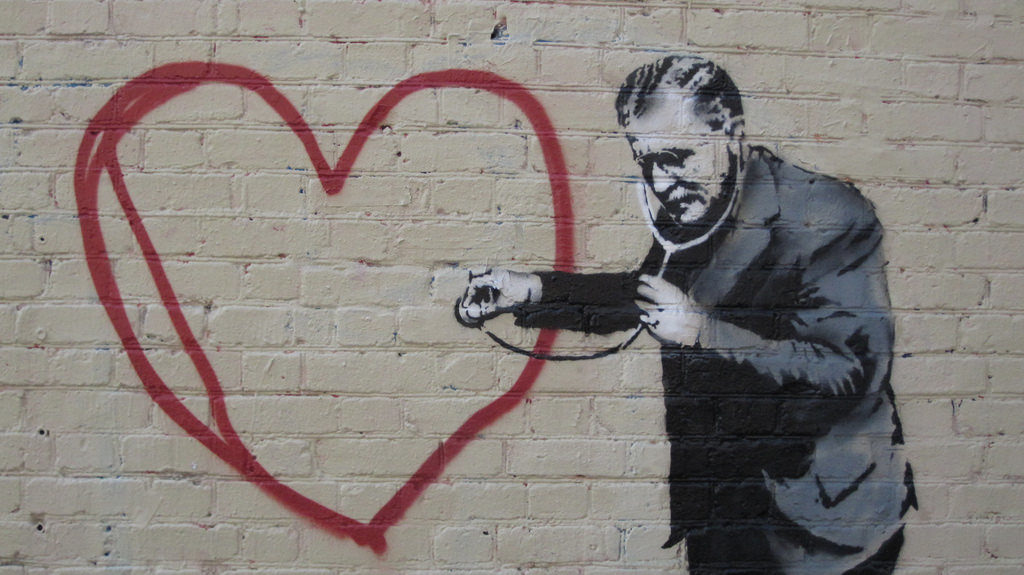
If you were to look up the word “love” in the dictionary, you’ll find a generic, cliche interpretation of it. Love involves romance. Love is a white wedding dress, a perfect couple, beautiful children, and perhaps a candlelit dinner. But, is that all love is? A romantic fairy tale?
These are questions I’ll be asking myself for the rest of my life, as my definition of love is always evolving. In fact, I don’t think I’ve ever come up with a concrete definition. There were times when I thought I was “in love,” only to find out later that I was experiencing a form of attachment that had little or nothing to do with love. Which brings me to another question, how are we to know and understand what love is when when we cannot even pinpoint what it looks like?
Love v.s. Attachment
This perfect image of love is further glorified in popular culture, through songs, films, books, television shows, and magazines. As a response, people, including myself, have been convinced that this type of love not only exists, but that it is a possibility for us, so we begin to chase it. I chased this mirage of floating hearts and perfect moments for many years of my life, only to be disappointed. Not to say that true romantic love doesn’t exist, but I now know that it has to be understood as something that is imperfect and, sometimes, even ugly.
There is a fine line between love and attachment and, although it is sometimes difficult to see, it’s important to know the difference between the two. There is a term that was discussed in bell hooks’ book All About Love called cathexis. In psychoanalysis, the term cathexis is emotional, physical, or any other type of investment that you put into someone or something. Naturally, we as humans become attached to that which we become used to and/or invest our time in. In other words, it is possible to become attached to something or someone that isn’t necessarily bringing anything positive to your life. Again, this is something that I had to learn the hard way; investing time in someone that is constantly hurting you, putting you down, and bringing only negative energy into your life does not mean that you are in love, it means that you are attached.
Love is a Verb
Let’s say that love has a lot more to do with an overall way of living, rather than being confined by the notion that it’s simply an intense feeling of deep affection for another person. If love was an action, rather than just a feeling, what would it look like?
I believe the generic, cliched definition of “love” that we’ll find in the dictionary is far too limiting, but I also think that it is definitely on the right track. Again, let’s say that love is guided by an intense feeling of affection, but that affection doesn’t have to be limited to a particular person or thing. Perhaps it is affection that can potentially guide all of our actions. Then, what would it look like?
“All the great movements for social justice in our society have emphasized a love ethic.” – bell hooks
Love Work
When you have a vision of making the world a better place, your actions must, in some way, come from a place of love. As bell hooks beautifully said, “All the great movements for social justice in our society have emphasized a love ethic.” All of the work that we do here at Generation Justice comes from a place of love, which is one of the many reasons why it is such a special space. Based on what I’ve said previously, if we can imagine love as a form of action alongside the very real feelings of love, the inclination to work toward positive change comes naturally. Being in this space has allowed me to distinguish between the limited description of love that I’ve been spoon-fed my whole life, and a type of love that has absolutely no boundaries.
We love our community, which is why our work strives everyday to inspire others to feel the same type of love. It also goes even deeper than that, though. What we give back to our community is a direct reflection of the space within Generation Justice. For us, it isn’t just about getting the stories out, it’s about establishing a family within our team, creating a comfortable space where we are all able to embrace our stories and our identities, and establishing an energy that encourages every person that we work with to be proud of who they are. This is how we operate from a place of love. I haven’t learned how to grow on my own, I’ve learned how to hold the hands of the people around me, so that we can grow together. This is what I believe bell hooks meant when she emphasized the importance of love within social justice. The only way that we truly find a sense of compassion within the work that we do is if our actions come from a place of selfless love.
I love you
I’m comfortable in my decision to resist creating boundaries or limitations within my perception of love. It is very much a huge part of our intimate relationships, but it is also a huge part of our lives in general, if we allow it to be. Saying that love is only suitable for romance misrepresents its infinite capability to contribute within all aspects of our daily lives. If we were to incorporate more love into our speech, we’ll be less likely to hurt with it. If we were to incorporate more love into our actions, we’ll be less likely to lead ourselves astray. And if we were to incorporate more love into the work that we do, the possibilities of making the world better would be endless.
(photo credit: El Payo/Flickr)

Leave a Reply